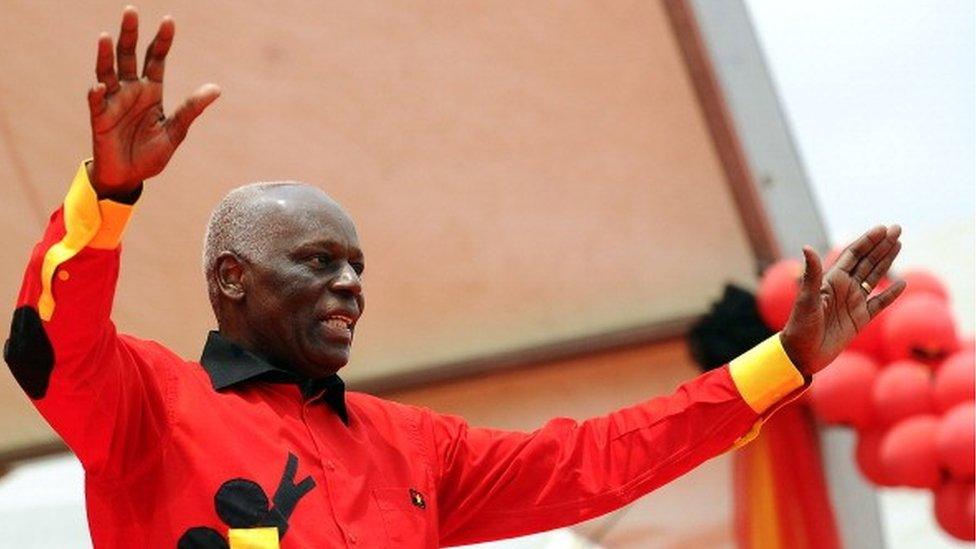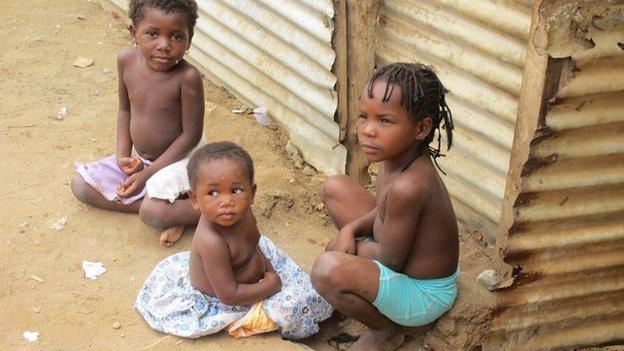Angola's Jose Eduardo dos Santos 'to step down in 2018'
- Published

Jose Eduardo dos Santos is one of Africa's longest-serving leaders
Angola's President Jose Eduardo dos Santos has announced he will step down in 2018, having ruled since 1979.
"I took the decision to leave and end my political life in 2018," he told a congress of the ruling MPLA party.
In 2001, Mr Dos Santos said he would not seek office in the next presidential elections, which were then abolished under the new constitution.
He is Africa's second longest-serving leader, after Equatorial Guinea's Teodoro Obiang Nguema Mbasogo.
General elections are due in Angola, Africa's second largest oil producer, in August 2017.
Critics accuse long-serving President Jose Eduardo dos Santos of being authoritarian and his government of committing human rights abuses.
The southern African state is rich in diamonds, which fuelled a 27-year civil war in the country.

Will Dos Santos really leave? By Angola analyst Justin Pearce
I remember Jose Eduardo dos Santos saying in 2001 that he was to step down.
That wasn't the only time he's spoken of an exit, but then allowed himself to be persuaded otherwise.
The problem is there is no obvious successor. Mr Dos Santos has run the MPLA in a manner that rules out any challenge to his leadership.
With the wealth he has amassed, if he relinquishes power it has to be to someone who will keep the business interests in the family.
Since 2011, attention has turned to Manuel Vicente, the state oil company boss who was hurriedly elevated to vice-president, then to Mr Dos Santos' son Jose Filomeno, and most recently to his wealthy businesswoman daughter Isabel.
None of these people will find favour with an increasingly restless public, or with MPLA old timers, who will resent a political newcomer being appointed simply because of connections with the veteran leader.
So two years hence, the president might again present himself as the least bad option. But, aged 73, he must know the question cannot be put off forever.

The former Portuguese colony the biggest military spender in sub-Saharan Africa, according to the Stockholm International Peace Research Institute.
Since the end of the conflict in 2002, the country has witnessed an economic boom, though critics of the elected government say the wealth has only benefited a small elite.
- Published27 March 2015

- Published20 October 2014